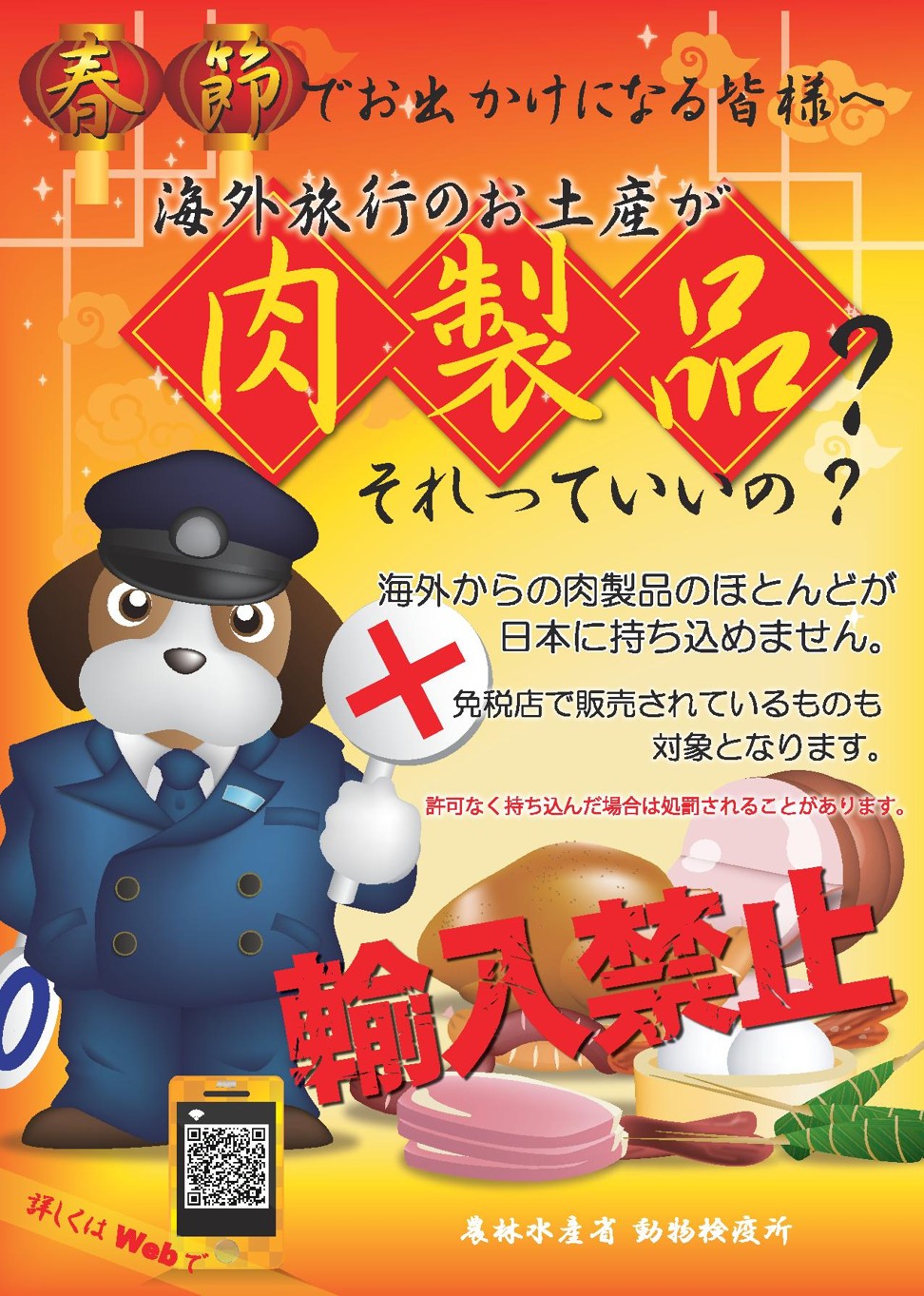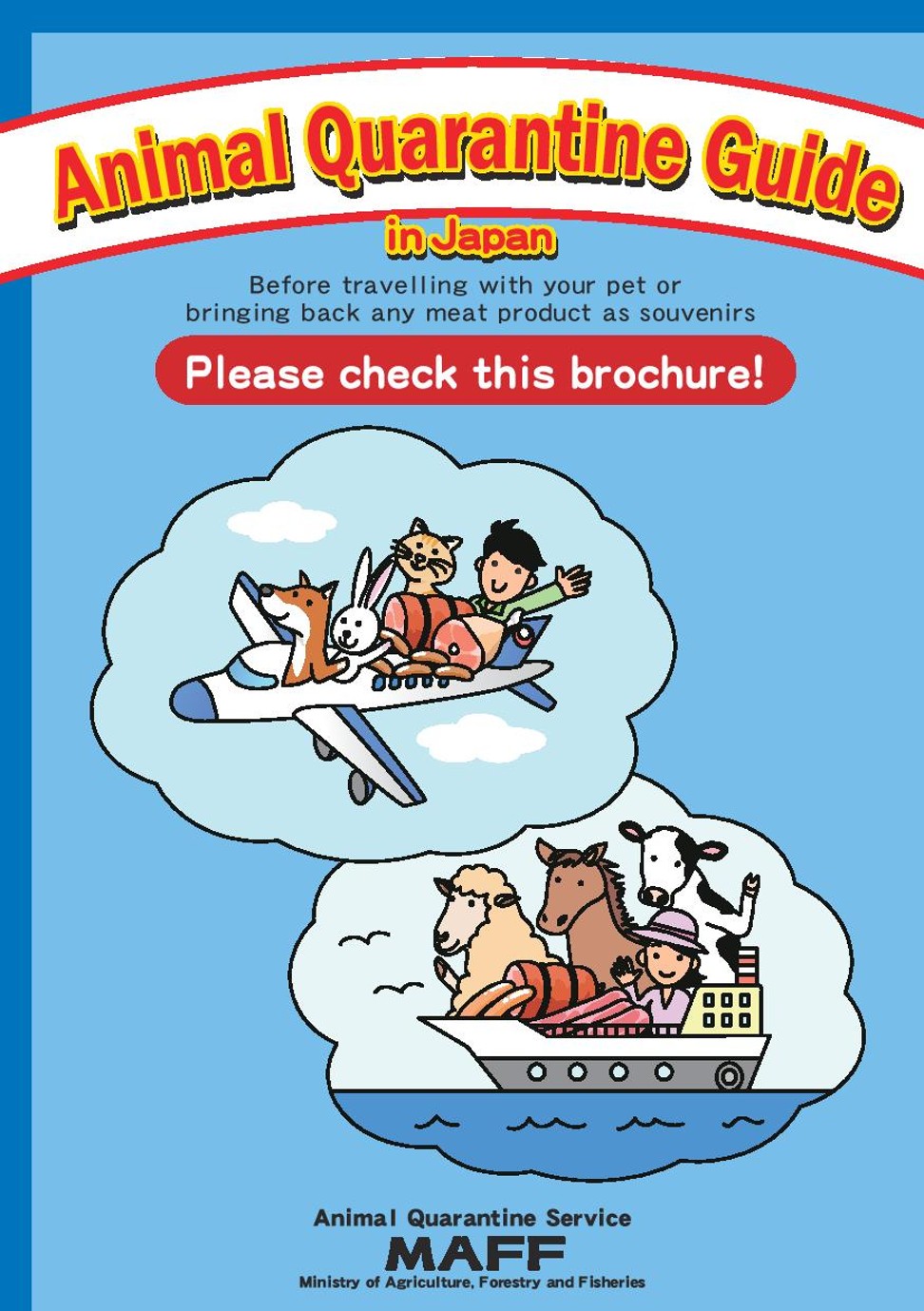
Japan cracks down on African swine fever and Chinese tourists carrying pork products into the country
- Awareness campaign has been aimed in large part at the tens of thousands of Chinese visitors coming to Japan during the Lunar New Year holiday
- The ministry’s website includes images of a number of pork products reportedly confiscated from inbound Chinese travellers

Japanese authorities are taking no chances with an outbreak of highly virulent swine fever that has been raging in Gifu Prefecture since September, now spreading to a seventh farm and leading to the culling of 1,600 pigs in late January.
Officials of the Ministry of Agriculture, Forestry and Fisheries told the South China Morning Post that a total of 11,000 pigs have been culled and they are still working to confirm how the illness spreads.
“We are investigating the possible routes of the infection but our present theory is that it is being spread through the local population of wild boar, a number of which we have confirmed to have tested positive for the virus,” said Yunosuke Yanagi, a spokesman for the ministry.
Humans are not susceptible to infection even if the meat of an animal with the virus is consumed, according to medical specialists.

The ministry’s efforts to bring the outbreak under control are being complemented by a campaign being waged at Japan’s airports and seaports to halt imports of pork products that have not been examined by quarantine officials for signs of any one of a number of livestock diseases.
That drive has taken the form of a poster and social media campaign aimed in large part at the tens of thousands of Chinese visitors coming to Japan during the Lunar New Year holiday and whom authorities fear may be carrying products that are infected with the African swine fever virus.
Our present theory is that it is being spread through the local population of wild boar
National broadcaster NHK reported quarantine measures have been expanded against imports of Chinese pork products due to “multiple outbreaks and the rapid spread” of African swine fever in China. Officials said there was no indication the present outbreak of swine fever in central Japan was linked to imports of tainted meat products from abroad but they were determined to prevent potential additional outbreaks.
Yanagi confirmed an additional 270 quarantine officials have been dispatched to airports and seaports around the nation, bringing the total to 400, and they will be conducting additional spot checks on inbound tourists and Japanese returning from holidays abroad to ensure they are not carrying any forbidden items.
Posters in Japanese, Chinese, English and Korean are displayed in ports, warning anyone found breaking the law could be fined up to 1 million yen (US$71,400) or jailed for up to three years.
The ministry’s website and posters include images of a number of pork products reportedly confiscated from inbound Chinese travellers although travel companies say they cannot recall any incidents involving their customers being detained for having illegal foodstuffs in their baggage.
Kaori Mori, of domestic travel giant JTB, said: “I’ve never heard of any of our Chinese clients being stopped or having items confiscated.”

An official of the Quarantine Office at Narita International Airport, outside Tokyo, declined to comment on the number of incidents involving illegally imported foodstuffs.
Fines are not immediately imposed on anyone found carrying banned meat products, Yanagi said, but would be imposed by a court after the individual is arrested and tried. Small amounts of banned pork products that are inadvertently brought into Japan but declared in good time to customs officials will be confiscated and destroyed.
I’ve never heard of any of our Chinese clients being stopped or having items confiscated
The additional quarantine officers are being supplemented by sniffer dogs trained to identify meat products and will be conducting checks until the end of February.
Yanagi said the concern within the ministry is that more outbreaks of any variant of a disease that forces the culling of livestock could deal a significant blow to the domestic industry.
There are an estimated 10 million pigs on Japanese farms, virtually all of which are destined for the domestic market.
More than 8.38 million Chinese visited Japan in 2018, the largest of any nationality among the 31.19 million arrivals last year. The figure for Chinese arrivals increased 14 per cent from the previous year – despite central Japan being hit by the most powerful typhoon in 26 years in September, followed four days later by a magnitude-6.7 earthquake that rocked Hokkaido.
More than 716,000 Chinese tourists visited Japan during the 2017 Lunar New Year celebrations and tourism officials hope to surpass that figure this year. Typically, families enjoy the sights of Tokyo and the ancient capital of Kyoto, with day trips to theme parks such as Tokyo Disneyland or Universal Studios Japan, in Osaka. Skiing is also popular in Hokkaido and northern parts of the country at this time of the year, while cruise ships will also be putting in at ports on the semi-tropical islands of Okinawa Prefecture, in the far south.
Another possible source of infection that authorities are investigating is contaminated pork brought into Japan by a visitor and thrown away before it was fully consumed. The waste may have then been eaten by a wild boar and the infection passed on to farm pigs.
Makoto Yamakawa, of Japan’s National Agriculture and Food Research Organisation, told the Nikkei newspaper that a careless tourist may have been to blame for the outbreak after discarding gyoza (dumplings) or a partly-finished sausage, while mice and birds may also have contributed to its spread.